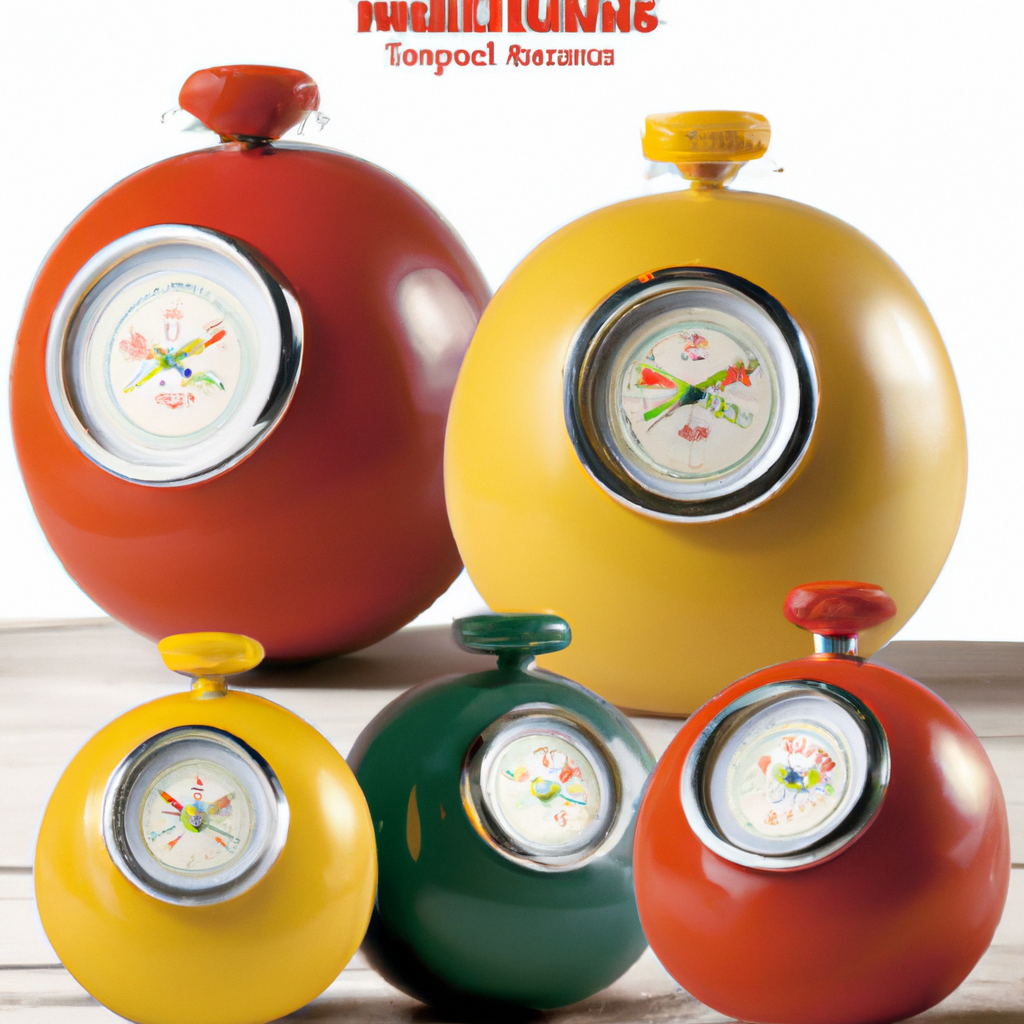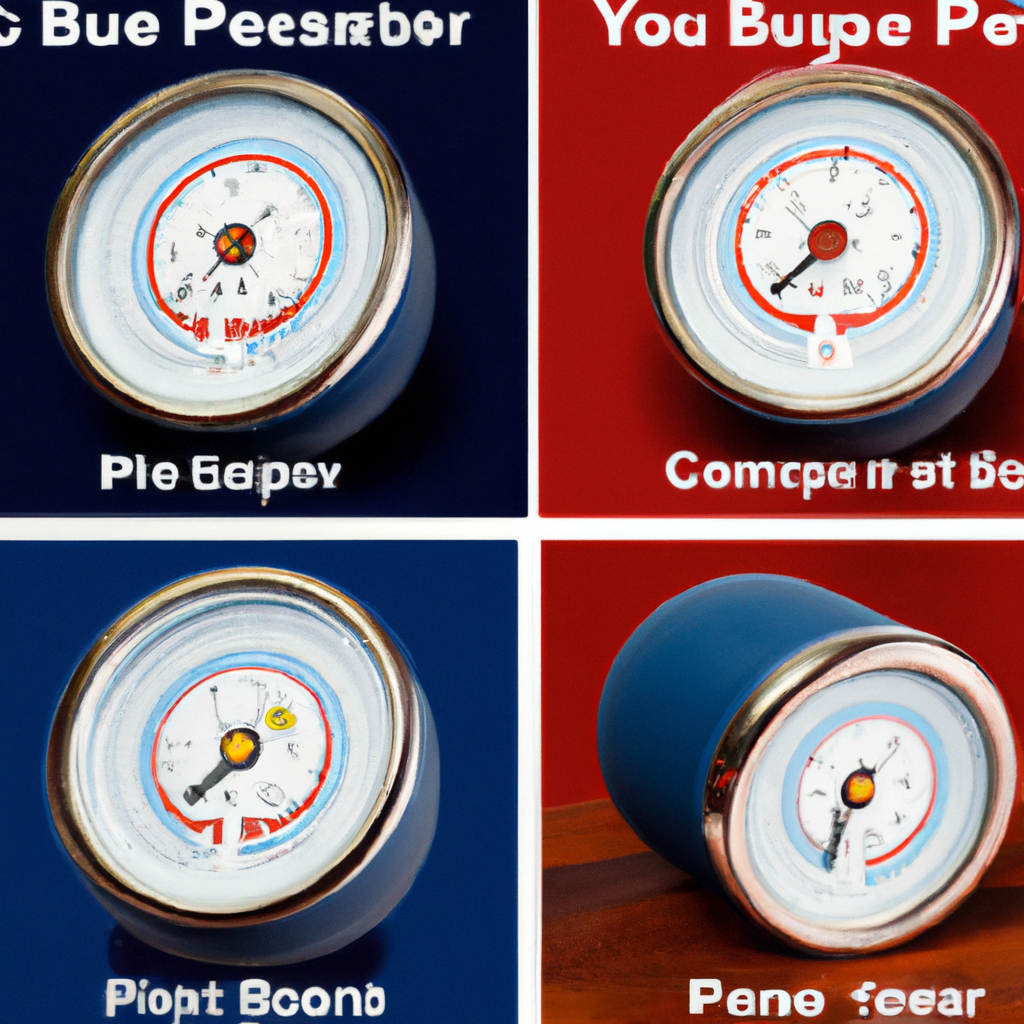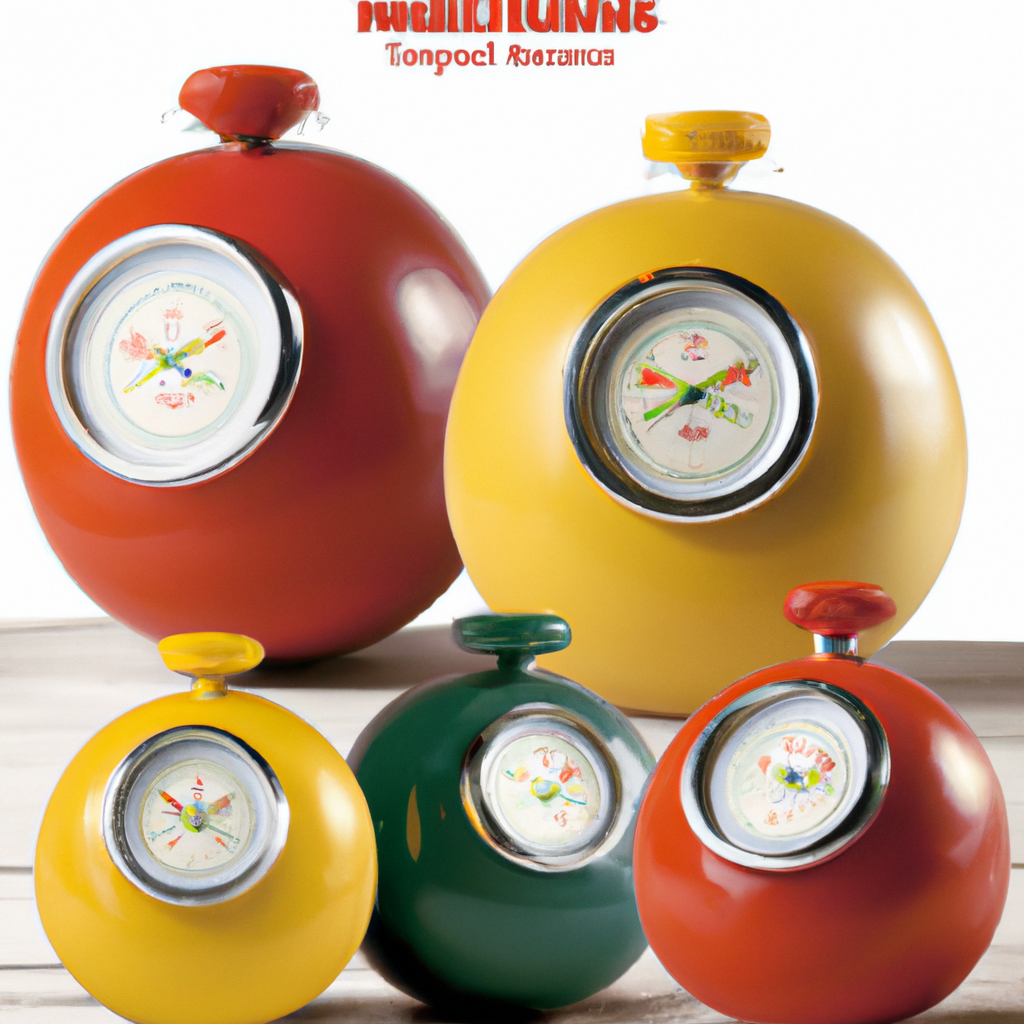Are you in the market for a pressure canner but feeling a little overwhelmed by all the options out there? Well, fret no more because we’ve got you covered. In this article, we will be comparing three popular types of pressure canners: the digital pressure canner, the dial gauge pressure canner, and the weighted gauge pressure canner. By the end of this article, you’ll have a clearer understanding of how these three differ from each other and which one might be the best fit for your canning needs. So let’s dive right in and explore the wonderful world of pressure canners!
Digital Pressure Canner
Definition and Features
A digital pressure canner is a modern and technologically advanced kitchen appliance that allows you to safely and efficiently preserve food. It uses digital controls and sensors to regulate and maintain the pressure inside the canner during the canning process. Digital pressure canners often have a large capacity, making them ideal for canning large batches of food.
Benefits
One of the key advantages of a digital pressure canner is its precise and reliable pressure regulation. The digital controls and sensors ensure that the pressure remains constant throughout the canning process, which is crucial for effectively preserving the food and preventing the growth of bacteria. Digital canners also offer convenience with their pre-programmed settings for different types of food, making it easy to set the correct pressure and cooking time with just the push of a button.
Additionally, digital pressure canners often come with built-in safety features such as automatic shut-off and pressure release valves, which provide extra peace of mind while using the appliance. The digital display also allows you to easily monitor the progress of the canning process and adjust settings if needed.
Drawbacks
One potential drawback of digital pressure canners is their reliance on electricity. If there is a power outage or any issues with the electrical supply, you may not be able to use the canner. This can be a disadvantage in areas with unreliable power sources or during emergencies.
Another consideration is the higher cost of digital pressure canners compared to other types. The advanced technology and additional features contribute to the higher price tag, which may not be suitable for those on a tight budget.
Ease of Use
Digital pressure canners are generally user-friendly and intuitive to operate. The digital controls and pre-programmed settings eliminate the need for manual adjustments, making the canning process more streamlined and convenient. The clear digital display also provides real-time information and guidance, making it easy to monitor and control the canning process.
Price Range
The price range for digital pressure canners varies depending on the brand, size, and features. On average, you can expect to pay anywhere from $200 to $500 for a high-quality digital pressure canner.
Popular Brands
Some popular brands of digital pressure canners include Instant Pot, All American, and Presto.
Dial Gauge Pressure Canner
Definition and Features
A dial gauge pressure canner is a traditional and reliable appliance used for home canning. It features a dial gauge on the lid, which indicates the pressure inside the canner during the canning process. Dial gauge canners are often made of durable materials such as stainless steel and are available in different sizes to accommodate various canning needs.
Benefits
One of the main benefits of a dial gauge pressure canner is its simplicity. The dial gauge provides a clear and easy-to-read measurement of the pressure, allowing you to accurately follow canning recipes and guidelines. This makes dial gauge canners suitable for beginners or those who prefer a more hands-on approach to canning.
Dial gauge canners also tend to be more affordable compared to digital canners, making them a budget-friendly option for home canning enthusiasts. The straightforward design and fewer electronic components also mean that there are generally fewer parts that can malfunction or require maintenance.
Drawbacks
One potential drawback of dial gauge pressure canners is their reliance on manual adjustments. Unlike digital canners, which automatically regulate the pressure, dial gauge canners require you to monitor and adjust the heat source to maintain the desired pressure level. This can require more attention and time during the canning process.
Additionally, dial gauge canners may not have the same level of precision as digital canners when it comes to pressure regulation. The dial gauge measurement may have a slight margin of error, which could affect the quality and safety of the canned food if not closely monitored.
Accuracy
Although dial gauge pressure canners provide a rough indication of the pressure, they may not always be the most accurate. The dial gauge measurement can be affected by factors such as altitude, temperature, and wear and tear over time. It is important to regularly test and calibrate the dial gauge to ensure its accuracy.
Maintenance
Maintaining a dial gauge pressure canner typically involves regular cleaning, checking for any signs of damage or wear, and ensuring that the dial gauge is calibrated correctly. The specific maintenance requirements may vary depending on the brand and model of the canner.
Price Range
The price range for dial gauge pressure canners is generally more affordable compared to digital canners. Depending on the size and brand, you can expect to pay anywhere from $80 to $200 for a dial gauge canner.
Popular Brands
Some popular brands of dial gauge pressure canners include Presto, Mirro, and Granite Ware.

Weighted Gauge Pressure Canner
Definition and Features
A weighted gauge pressure canner, also known as a weighted jiggle top canner, is another traditional option for home canning. These canners feature a weighted pressure regulator on the vent pipe, which jiggles to release excess steam and maintain a consistent pressure during the canning process.
Benefits
One of the main benefits of a weighted gauge pressure canner is its simplicity and reliability. The weighted regulator does not require any manual adjustments or monitoring, as it automatically releases steam to maintain the desired pressure. This makes weighted gauge canners a popular choice among experienced canners or those who prefer a more hands-off approach.
Weighted gauge canners are often made of lightweight materials such as aluminum, making them easy to handle and transport. They are also generally more affordable compared to digital or dial gauge canners, making them an economical option for home canning.
Drawbacks
One potential drawback of weighted gauge pressure canners is their limited pressure settings. Unlike digital or dial gauge canners, which allow for precise pressure control, weighted gauges typically have a single pressure setting. This means that certain recipes or canning guidelines that require specific pressure levels may not be suitable for a weighted gauge canner.
Another consideration is the noise generated by the jiggling of the weighted regulator. While some may find it nostalgic or charming, others may find the constant noise during the canning process disruptive or annoying.
Reliability
Weighted gauge canners are generally considered reliable due to their straightforward design and mechanical operation. With fewer components and electronic parts, there is less chance of malfunctioning or technical issues.
Maintenance
Maintaining a weighted gauge pressure canner typically involves regular cleaning, checking for any signs of damage or wear, and ensuring that the weighted regulator is functioning correctly. Depending on the brand and model, there may be specific maintenance requirements or recommendations.
Price Range
The price range for weighted gauge pressure canners is typically more affordable compared to digital or dial gauge canners. Depending on the size and brand, you can expect to pay anywhere from $50 to $150 for a weighted gauge canner.
Popular Brands
Some popular brands of weighted gauge pressure canners include Presto, Mirro, and T-fal.
Comparison
Operation Mechanism
Digital pressure canners utilize advanced digital controls and sensors to regulate and maintain the pressure, automatically adjusting as needed. Dial gauge canners require manual adjustments of the heat source to maintain the desired pressure, while weighted gauge canners use a weighted regulator to automatically release excess steam.
Pressure Regulation
Digital pressure canners offer precise and reliable pressure regulation, ensuring consistent pressure throughout the canning process. Dial gauge pressure canners provide a rough indication of the pressure and require closer monitoring and adjustment. Weighted gauge canners have a single pressure setting, which may not be suitable for all recipes or guidelines.
Accuracy
Digital pressure canners are known for their accuracy in pressure regulation, while dial gauge canners may have a margin of error in their measurements. Weighted gauge canners typically maintain a consistent pressure but may not offer the same level of precision as digital or dial gauge canners.
Maintenance
Digital pressure canners may require regular cleaning and maintenance of electronic components. Dial gauge canners and weighted gauge canners generally have fewer parts to maintain and may only require cleaning and occasional calibration or checking for any signs of damage.
Versatility
Digital pressure canners often come with pre-programmed settings for different types of food, allowing for versatility in canning various recipes. Dial gauge canners and weighted gauge canners may have limitations in terms of pressure settings and may not be suitable for all types of canning.
Price
Digital pressure canners tend to be the most expensive option, followed by dial gauge canners and weighted gauge canners, which are more budget-friendly.
User-Friendliness
Digital pressure canners are generally user-friendly with their easy-to-use digital controls and pre-programmed settings. Dial gauge canners require closer monitoring and manual adjustments, while weighted gauge canners offer a more hands-off approach.
Popular Usage Scenarios
Digital pressure canners are popular among those who prioritize precision and convenience in their canning process. Dial gauge canners are suitable for beginners or those who prefer a more traditional approach. Weighted gauge canners are often favored by experienced canners or those looking for a simple and reliable option.
In conclusion, the choice between a digital pressure canner, a dial gauge pressure canner, and a weighted gauge pressure canner ultimately depends on your specific needs and preferences. Digital canners offer precision and convenience, dial gauge canners provide simplicity and affordability, and weighted gauge canners offer reliability and ease of use. Consider the features, benefits, drawbacks, and price range for each type of canner before making your decision, and enjoy the process of preserving your favorite foods through home canning.

